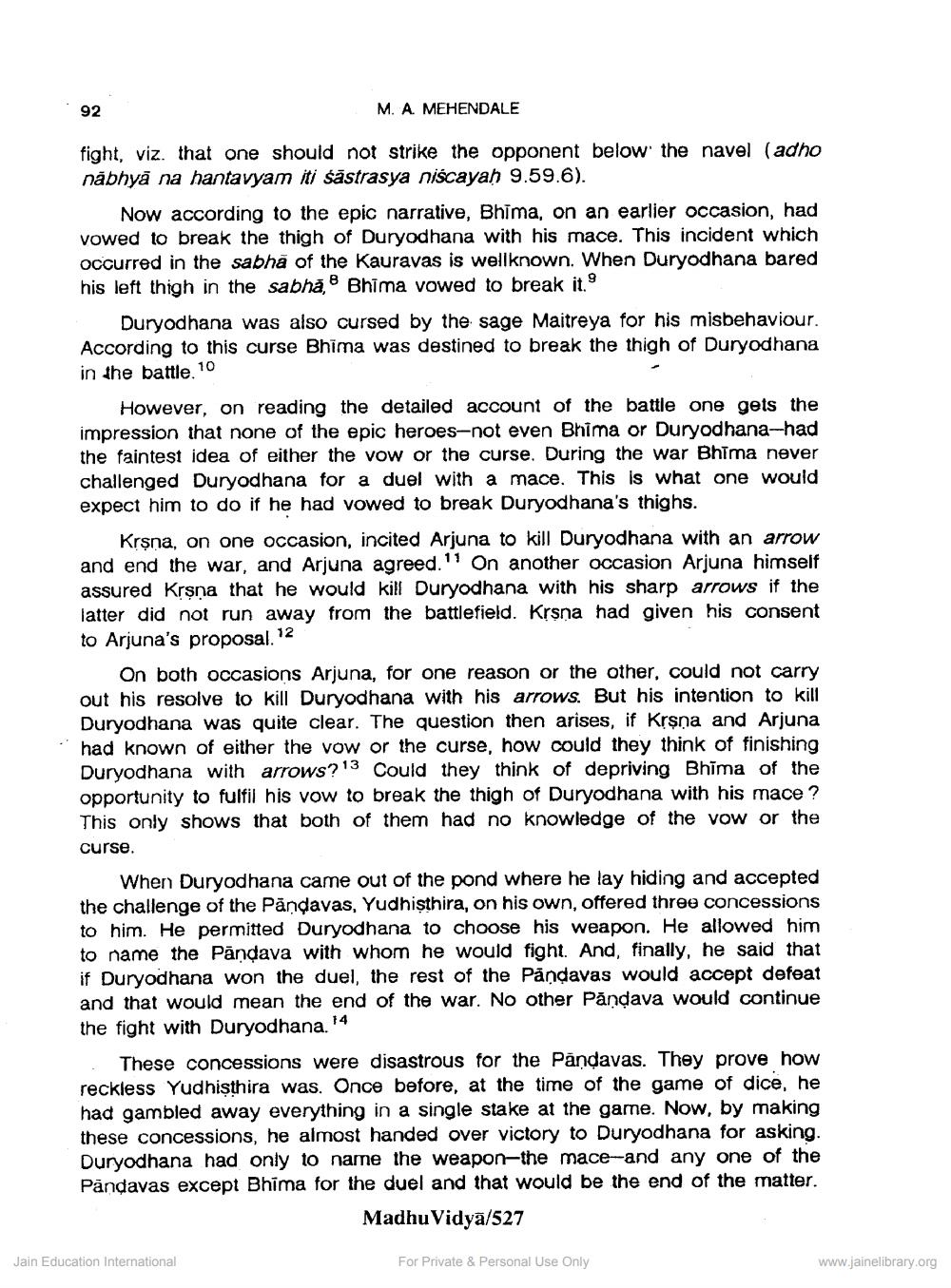________________
92
M. A. MEHENDALE
fight, viz. that one should not strike the opponent below the navel (adho nabhya na hantavyam iti sastrasya niscayah 9.59.6).
Now according to the epic narrative, Bhima, on an earlier occasion, had vowed to break the thigh of Duryodhana with his mace. This incident which occurred in the sabha of the Kauravas is wellknown. When Duryodhana bared his left thigh in the sabha, Bhima vowed to break it.9
Duryodhana was also cursed by the sage Maitreya for his misbehaviour. According to this curse Bhima was destined to break the thigh of Duryodhana in the battle, 10
However, on reading the detailed account of the battle one gets the impression that none of the epic heroes-not even Bhima or Duryodhana-had the faintest idea of either the vow or the curse. During the war Bhima never challenged Duryodhana for a duel with a mace. This is what one would expect him to do if he had vowed to break Duryodhana's thighs.
Krsna, on one occasion, incited Arjuna to kill Duryodhana with an arrow and end the war, and Arjuna agreed." On another occasion Arjuna himself assured Krsna that he would kill Duryodhana with his sharp arrows if the latter did not run away from the battlefield. Krsna had given his consent to Arjuna's proposal. 12
On both occasions Arjuna, for one reason or the other, could not carry out his resolve to kill Duryodhana with his arrows. But his intention to kill Duryodhana was quite clear. The question then arises, if Krsna and Arjuna had known of either the vow or the curse, how could they think of finishing Duryodhana with arrows?13 Could they think of depriving Bhima of the opportunity to fulfil his vow to break the thigh of Duryodhana with his mace? This only shows that both of them had no knowledge of the vow or the
curse.
When Duryodhana came out of the pond where he lay hiding and accepted the challenge of the Pandavas, Yudhisthira, on his own, offered three concessions to him. He permitted Duryodhana to choose his weapon. He allowed him. to name the Pandava with whom he would fight. And, finally, he said that if Duryodhana won the duel, the rest of the Pandavas would accept defeat and that would mean the end of the war. No other Pandava would continue the fight with Duryodhana. 14
These concessions were disastrous for the Pandavas. They prove how reckless Yudhisthira was. Once before, at the time of the game of dice, he had gambled away everything in a single stake at the game. Now, by making these concessions, he almost handed over victory to Duryodhana for asking. Duryodhana had only to name the weapon-the mace-and any one of the Pandavas except Bhima for the duel and that would be the end of the matter.
Madhu Vidya/527
Jain Education International
For Private & Personal Use Only
www.jainelibrary.org




